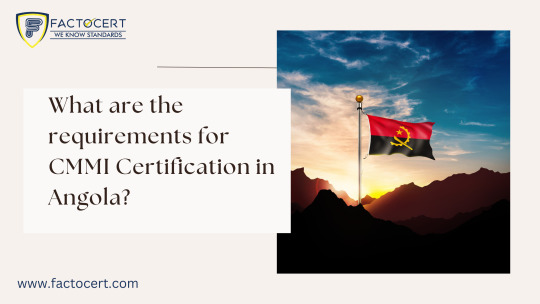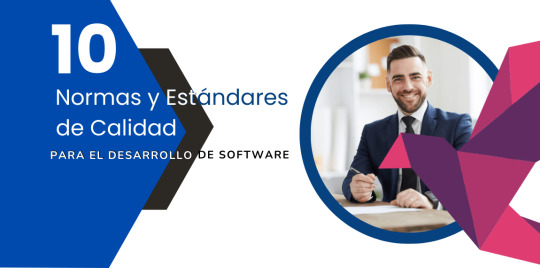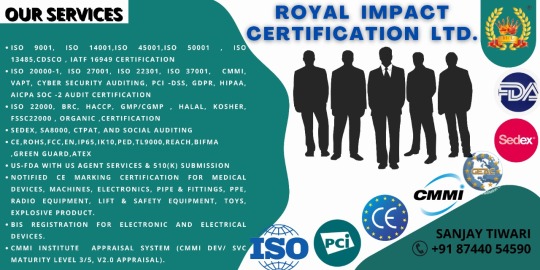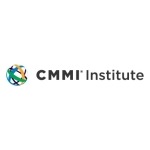#CMMI V2.0
Explore tagged Tumblr posts
Text
Why Your Business Needs CMMI V Training?
Introduction to CMMI V2.0
The Capability Maturity Model Integration (CMMI) is a process model that provides a comprehensive framework for organizations to improve their processes. The CMMI V2.0 was released in 2010 and is the most current version of the CMMI.
The CMMI V2.0 is organized into 5 maturity levels: Initial, Managed, Defined, Quantitatively Managed, and Optimizing. Each level represents an increasing degree of process maturity. An organization does not need to achieve all 5 levels to see benefits from implementing the CMMI V2.0 – any improvement in process maturity will result in benefits such as improved quality, reduced costs, and shorter project timelines.
To implement the CMMI V2.0, organizations first need to assess their current processes using the CMMI model. Once the baseline has been established, organizations can develop an action plan for improving their processes. Implementation of the CMMI V2.0 requires commitment from senior management and should be driven by business objectives.
The CMMI training offers many benefits for organizations looking to improve their processes. By taking advantage of the comprehensive framework provided by the CMMI V2.0, organizations can improve their quality, reduce costs, and shorten project timelines – resulting in a competitive advantage in today’s marketplace.

0 notes
Text
What are the requirements for CMMI Certification in Angola?

What is CMMI Certification?
CMMI Certification in Angola, the CMMI (Capability Maturity Model Integration) is a popular framework that can help companies increase their efficiency by increasing their operations’ effectiveness. It is widely used in engineering, software development, IT-related services, and more. The certification is granted following the formal CMMI appraisal that evaluates how well your business’s procedures align with CMMI practice models.
Why CMMI Certification Matters in Angola
As the economy of Angola continues to diversify, businesses aiming for international contracts for government and businesses require global quality standards. CMMI Certificates in Angola assure you the processes you use are practical, predictable, and capable of providing consistent quality, making your company more competitive in the global marketplace.
Key Requirements for CMMI Certification in Angola
Your company must adhere to an organized approach to obtain CMMI Certification in Angola. The main requirements are as follows:
1. Choose the Right CMMI Level: CMMI has five levels of maturity:
Level 1: Initial
Level 2: Managed
Level 3: Defined
Level 4: Quantitatively Managed
Level 5: Optimizing
Most businesses in Angola start at the 2/3 level. Based on their current state of process maturity.
2. Learn to use the CMMI Model (V2.0): Learn how to utilize this CMMI Model (V2.0). This is why it’s strongly advised that the latest versions of the CMMI Model (currently CMMI V2.0) be mastered. This update introduces new issues that include security flexibility, agility, and data management, all of which are vital for modern businesses.
3. Conduct a Gap Analysis: Before submitting an appraisal request Before submitting for appraisal, conduct the internal gap study to pinpoint areas in which your current processes are not in line with the model of CMMI consultants in Angola. CMMI experts in Angola typically support this process.
4. Implement Process Improvements: Following the gaps analysis, your group has to design and implement process improvements across departments. Examples include:
Project Management
Quality Assurance
Software Development Life Cycle (SDLC)
Risk Management
Performance Monitoring
These changes should be documented, repeatable and quantifiable.
5. Train Your Team: Training is a crucial necessity. Your employees should be educated on:
CMMI fundamentals
Implementation of the process
Documentation practices
Continuous improvement
Review a CMMI Associate and the CMMI certification in Angola Practitioner course before your appraisal.
6. Hire a Certified Lead Appraiser (CLA): The CMMI Certification in Angola needs an appraisal performed by an authorized Lead Appraiser of CMMI. Pick an appraiser knowledgeable about working environments in Angola to ensure smooth and efficient communication.
7. Schedule and Undergo a SCAMPI Appraisal: SCAMPI is the acronym for Standard CMMI Appraisal Methods to Assess Process Improvement. The appraisal process includes:
Examining documents
Interviewing team members
Verifying process conformance
Only after the successful SCAMPI evaluation can your business become officially CMMI Certified.
Industries in Angola that benefit from CMMI
IT and Software Development Companies
Telecommunication Providers
Construction and Engineering Firms
Government Contractors
Startups Aiming for Global Markets
Benefits of CMMI Certification in Angola
Here are a few main benefits of being CMMI certified:
Procedure Standardization: Use reproducible and well-documented procedures.
Improved Performance: Identifying and eliminating inefficiencies in processes that cause delays and overruns in cost is possible.
Quality Assurance: Better results with the least amount of imperfections.
Business Growth: Get international clients and enter new markets.
Enhance Teams Performance: More collaboration training, accountability, and collaboration within teams.
Steps to Get CMMI Certification in Angola
Becoming CMMI certified requires a series of formal steps:
1. Learn how to use the CMMI Model: Make sure you are familiarizing your business with the newest Version, CMMI V2.0.
2. Conduct a gap analysis: Find out the areas where your current processes are not meeting the requirements of the CMMI standards.
3. Engage a CMMI Consultant: You can work with an accredited advisor in Angola to help you get on the right path towards certification.
4. Implement the required process improvements: Design the workflow process, increase documentation and track KPIs.
5. Training Your Team: Create training sessions to ensure your employees align with CMMI principles.
6. Evaluation of Appraisal Readiness: Perform an appraisal mock to test your ability.
7. Conduct the official SCAMPI Assessment: The certified Lead Appraiser of CMMI will assess your company.
8. Recognized: You’ll receive your CMMI certificate if you pass the evaluation.
Why Factocert for CMMI Certification in Angola
We provide the best CMMI Certification in Angola who are knowledgeable and provide the best solutions. Kindly contact us at [email protected]. CMMI Certification consultants in Angola and CMMI auditors in Angola work according to ISO standards and help organizations implement CMMI certification consultants in Angola with proper documentation.
For more information, visit CMMI Certification in Angola.
Related Link:
ISO Certification in Angola
ISO 9001 Certification in Angola
ISO 14001 Certification in Angola
ISO 45001 Certification in Angola
ISO 13485 Certification in Angola
ISO 27001 Certification in Angola
ISO 22000 Certification in Angola
CE Mark Certification in Angola
0 notes
Text
Top CMMI Certification Training Courses in India - Maclead Certifications
In today’s competitive landscape, organizations are continually seeking ways to enhance their processes and deliver superior services. One of the most effective methods to achieve this is through the Capability Maturity Model Integration (CMMI). CMMI certification not only demonstrates a commitment to quality but also helps organizations improve their operational efficiency. This article explores the top CMMI certification courses in India, highlighting the offerings from Maclead Certifications, including CMMI Associate Team Member (ATM) training, CMMI certification services, and the best training options available.

Understanding CMMI Certification
CMMI is a process improvement framework that enables organizations to enhance their performance through a structured approach. The certification process consists of various levels, with Level 3 and Level 5 being particularly sought after. Organizations aiming for CMMI Level 3 certification in India can significantly boost their project management and process development capabilities, while those targeting CMMI Level 5 certification can demonstrate their commitment to continuous improvement and innovation.
CMMI Certification Training Courses Offered by Maclead Certifications
Maclead Certifications provides a variety of CMMI certification training courses tailored to meet the needs of different professionals and organizations. These courses are designed to offer a comprehensive understanding of CMMI principles and practices. Here are some notable options available through Maclead Certifications:
CMMI Associate Team Member (ATM) Training: This foundational course is designed for individuals new to CMMI. It covers the basics of the CMMI model, enabling participants to understand their roles as team members in CMMI projects. This training is essential for anyone looking to start their journey in process improvement.
CMMI DEV Certification in India: The Development (DEV) certification focuses on the processes involved in software development and engineering. This course is ideal for organizations involved in product development and helps them align their practices with CMMI standards.
CMMI SVC Certification in India: The Services (SVC) certification is designed for organizations providing services rather than products. This course covers service delivery processes and is crucial for companies aiming to enhance service quality.
CMMI Services Certification in India: This training encompasses best practices for service organizations looking to achieve CMMI certification. It helps teams implement effective processes that can lead to improved service delivery and customer satisfaction.
Choosing Maclead Certifications as Your CMMI Provider
Selecting the right CMMI certification provider is critical to the success of your training and certification efforts. Maclead Certifications stands out as a premier provider, offering comprehensive training programs led by experienced CMMI certification consultants. These experts not only assist organizations in achieving CMMI certification but also guide them through the implementation process.
When looking for a CMMI certification provider for CMMI V2.0, ensure that they have a proven track record of successful certifications. Maclead Certifications provides customized training sessions tailored to the specific needs of various industries.
Conclusion
CMMI certification is an invaluable asset for organizations aiming to enhance their processes and improve service delivery. With numerous CMMI certification training courses available through Maclead Certifications, professionals can choose from a variety of options, including CMMI Associate Team Member (ATM) training, CMMI DEV certification, and CMMI SVC certification. By partnering with Maclead Certifications, organizations can successfully navigate the certification process and achieve their quality improvement goals. Whether you are aiming for CMMI Level 3 certification or CMMI Level 5 certification, investing in the right training with Maclead Certifications is essential for long-term success.
Source Link :
#CMMI certification services#CMMI certification training course#CMMI certification training course in India
0 notes
Text
Recognize the List of Mandatory CMMI (V2.0) Level 3 Procedures that Must be Documented
Organizations can reduce risks in software, product, and service development by streamlining process improvement and promoting effective, efficient behaviour through the use of the Capability Maturity Model Integration (CMMI), a process and behavioural model. The Software Engineering Institute at Carnegie Mellon University created the CMMI as a tool for process improvement in projects, departments, or organizations.
#cmmi#cmmilevel3#cmmiv2level3standard#cmmidocuments#cmmicertification#cmmiprocedures#editableproceduredocuments
0 notes
Text
0 notes
Text
10 Normas y Estándares de Calidad para el Desarrollo de Software

En el mundo actual, el software se ha convertido en un elemento fundamental para el funcionamiento de las empresas y organizaciones. El desarrollo de software de calidad es crucial para garantizar la eficiencia, la seguridad y la confiabilidad de los sistemas informáticos. Las normas y estándares de calidad para el desarrollo de software son un conjunto de reglas y prácticas que ayudan a las organizaciones a crear software de alta calidad. Estas normas y estándares se basan en las mejores prácticas de la industria y han sido desarrolladas por expertos en el campo del desarrollo de software. Beneficios de las normas y estándares de calidad: - Mejora la calidad del software: Las normas y estándares ayudan a asegurar que el software se desarrolle de manera consistente y que cumpla con los requisitos especificados. - Aumenta la eficiencia del desarrollo: Las normas y estándares pueden ayudar a reducir el tiempo y el costo del desarrollo de software al proporcionar una guía clara y concisa. - Mejora la seguridad del software: Las normas y estándares pueden ayudar a mejorar la seguridad del software al definir requisitos para la gestión de riesgos y la seguridad de los activos. - Aumenta la satisfacción del cliente: El desarrollo de software de calidad ayuda a mejorar la - satisfacción del cliente al proporcionar software que es confiable, eficiente y fácil de usar. A continuación te enlisto las 10 normas más utilizadas a nivel mundial: 1. ISO 9001:2015: Sistema de gestión de la calidad. Se enfoca en la satisfacción del cliente y la mejora continua de los procesos. 2. ISO/IEC 27001:2013: Sistema de gestión de la seguridad de la información. Protege la confidencialidad, integridad y disponibilidad de la información. 3. CMMI-DEV v2.0: Modelo de madurez de capacidades para el desarrollo de software. Evalúa la madurez de los procesos de desarrollo y define las mejores prácticas. 4. Agile: Conjunto de metodologías que valoran la colaboración, la entrega rápida y la adaptación al cambio. 5. Scrum: Marco de trabajo ágil que divide el proyecto en sprints cortos y entregas incrementales. 6. Kanban: Método para visualizar el flujo de trabajo y limitar el trabajo en curso. 7. IEEE 830-1998: Estándar para la documentación de software. Define los requisitos para la elaboración de diferentes tipos de documentos. 8. ISO/IEC 12207:2008: Estándar para el ciclo de vida del software. Define las etapas y actividades del desarrollo de software. 9. ISO/IEC 9126:2018: Estándar para la calidad del software. Define las características que determinan la calidad del software. 10. MISRA C:2012: Guía de estilo para la codificación en lenguaje C. Promueve la seguridad y confiabilidad del código. ISO 9001:2015: Se centra en la satisfacción del cliente a través de la mejora continua de los procesos. Define requisitos para la planificación, implementación, control y mejora del sistema de gestión de la calidad. ISO/IEC 27001:2013: Protege la información confidencial, asegurando su integridad y disponibilidad. Define requisitos para la gestión de riesgos, control de acceso, seguridad de los activos y respuesta a incidentes. CMMI-DEV v2.0: Evalúa la madurez de los procesos de desarrollo en cinco niveles. Define las mejores prácticas para cada nivel de madurez. Agile: Promueve la colaboración, la entrega rápida y la adaptación al cambio. Se basa en principios como la comunicación continua, la retroalimentación temprana y la entrega incremental. Scrum: Divide el proyecto en sprints cortos y entregas incrementales. Cada sprint tiene un objetivo definido y se realiza una revisión al final del mismo. Kanban: Visualiza el flujo de trabajo y limita el trabajo en curso. Se basa en la idea de que "el trabajo en curso es el enemigo de la calidad". IEEE 830-1998: Define los requisitos para la elaboración de diferentes tipos de documentos de software, como planes de desarrollo, especificaciones de requisitos y manuales de usuario. ISO/IEC 12207:2008: Define las etapas y actividades del desarrollo de software, desde la planificación hasta la implementación y el mantenimiento. ISO/IEC 9126:2018: Define las características que determinan la calidad del software, como la funcionalidad, la confiabilidad, la eficiencia y la usabilidad. MISRA C:2012: Promueve la seguridad y confiabilidad del código mediante la definición de reglas para la codificación en lenguaje C. Read the full article
0 notes
Text
Dear Sir,
Greetings. I take this opportunity to introduce Royal Impact Certification Ltd. (RICL) as an accredited certification body providing various types of management systems and product certification services. RICL is a member of the Quality Council of India (QCI), accredited by JAS-ANZ Australia and UAF, USA. & EGAC.
We provide certification services for the following standards:
ISO 9001, ISO 14001, ISO 13485,CDSCO , IATF 16949
ISO 20000, ISO 27001, VAPT, Cyber Security Auditing, PCI DSS,
AICPA SOC -2 Audit
ISO 22000, BRC, FSMS, HACCP, and Food Safety Auditing
HALAL, KOSHER, FSSC22000 Certification
SEDEX, SA8000, and Social Auditing
RoHS, FCC & GMP , EN
US-FDA with US Agent Services & 510(K) Submission
CE certification for Medical Devices and Machines
BIS registration for Electronic and Electrical Devices.
CMMI Institute Appraisal System (CMMI Dev/ SVC Maturity
Level 3/5, V2.0 Appraisal.)
I would request you to kindly provide us an opportunity to certify your Company.
SANJAY TIWARI
Royal Impact Certification limited
P: +91 8744054590 E: [email protected]
623, Tower-B, I Thum IT Park, Sector 62, Noida, Uttar Pradesh
www.isointernational.org

2 notes
·
View notes
Text
Who Issues CMMI Certification
The Capability Maturity Model Integration (CMMI) certification is issued by the CMMI Institute, a subsidiary of the Institute for Engineering Education and Research (IEER) located in Pittsburgh, Pennsylvania, United States.
The CMMI Institute is responsible for managing and updating the CMMI model, as well as providing training, assessment, and certification services to organizations that want to improve their processes and performance using the CMMI model.
The CMMI Institute offers a variety of CMMI certification programs, including:
CMMI Capability Level Certification: This certification program assesses an organization's capability to implement best practices and process improvements based on the CMMI model. The certification levels range from Level 1 (initial) to Level 5 (optimized).
CMMI Development V2.0 Certification: This certification program focuses on the development of products and services using the CMMI model. It assesses an organization's ability to develop and maintain high-quality products and services that meet customer needs and expectations.
CMMI Services V2.0 Certification: This certification program focuses on the delivery of services using the CMMI model. It assesses an organization's ability to deliver high-quality services that meet customer needs and expectations.
To obtain Capability Maturity Model Integration (CMMI) certification, organizations must undergo a detailed assessment by a CMMI Institute-certified lead appraiser. The assessment involves reviewing the organization's processes, practices, and performance against the relevant CMMI model, and may include interviews with staff, observation of work practices, and review of documentation.
In summary, the CMMI Institute is responsible for issuing CMMI certification, and offers a variety of certification programs to help organizations improve their processes and performance using the CMMI model. The certification process involves a detailed assessment by a CMMI Institute-certified lead appraiser.
0 notes
Text
Implementation of CMMI certification in Singapore
Introduction
The Capability Maturity Model Integration (CMMI) assists businesses in streamlining process improvement and promotes actions that lower risks in the creation of software, goods, and services. Starting with a series of evaluations of process and service development, service establishment and administration, and product and service acquisition, the model offers firms a framework for creating better products and services. CMMI Certification in Singapore improves business performance, enhances agile resiliency and scale, increases the utility of benchmarking, and speeds adoption, CMMI was revised to V2.0 in 2018.
Consider acquiring CMMI certification if you want to advance your career and your organization's development procedures.
The types of CMMI SCAMPI appraisals listed below are those that the CMMI V2.0 Appraisal Method Definition Document describes.
Benchmark Evaluation
This CMMI SCAMPI appraisal is completed when an organization commences on its CMMI journey.
Sustainment Evaluation
CMMI Services in Singapore sustainment appraisal is conducted two years after a company has passed the CMMI appraisal to make sure it is still performing at the appraisal level.
Action Plan Evaluation
This kind of appraisal is intended to give organizations a second opportunity that didn't meet their desired appraisal level in an earlier appraisal.
Examining Appraising
This is intended to assist a company in getting ready for an evaluation and identifying areas for development.
How does CMMI Level work?
A maturity level is a clearly defined evolutionary plateau that is reached when a software development process is mature. Every maturity level adds a layer to the structure supporting ongoing process improvement. CMMI Audit in Singapore has five maturity levels in CMMI models with a staged representation.
How does CMMI Level 1 work?
Processes at maturity level 1 (CMMI Level 1) are typically haphazard and chaotic. Typically, the company does not offer a stable environment. Success in these companies rests more on the abilities and valor of the individuals working there than it does on following tried-and-true procedures.
What is CMMI level 2?
At maturity level 2, an organization has completed all of the process areas' specialized and general goals. In other words, the organization's initiatives have made sure that processes are planned, carried out, measured, and controlled, as well as that requirements are managed. Requirements, procedures, outputs, and services are controlled at maturity level 2. Relevant stakeholders establish commitments, which are then modified as necessary. Mature level 2's emphasis on process discipline aids in ensuring that current procedures are followed even under pressure.
What is CMMI Level 3?
One of the five "Maturity Levels" in the CMMI is called CMMI Level 3. When a company successfully completes a SCAMPI A evaluation, which confirms that the company is running at Level 3, it reaches CMMI Level 3, also known as the "Defined" level. Processes are well specified, understood, and described in standards, procedures, instruments, and methods at maturity level 3.
What is CMMI level 4?
CMMI Registration in Singapore - level 4 development The sub-processes that have the greatest impact on process performance are chosen. Statistical and other quantitative techniques are used to govern these chosen sub-processes. Process management uses quantitative objectives for process performance and quality as criteria. To enable future fact-based decision-making, quality, and process performance measurements are added to the organization's measurement repository.
How to get CMMI certification?
You're in good hands if you're wondering how to obtain CMMI certification in Singapore. For businesses to plan, design, implement, monitor, control, improve, and upgrade their CMMI Certification management system, we offer one of the most comprehensive suites of CMMI Consultancy in Singapore.
0 notes
Text
CMMI V2.0 Model-Based Conssultanycy: Identifying The Gaps
CMMI model-based consulting is a specialized service that helps organizations optimize their processes and achieve higher levels of maturity based on the Capability Maturity Model Integration (CMMI) framework. CMMI is a globally recognized model that provides guidelines for assessing and improving an organization's capabilities across various domains, such as software development, project management, and service delivery.
GAP Analysis: CMMI Consultancy's In-Depth Report
GAP analysis is a critical component of CMMI model-based consulting, serving as a fundamental step in the process improvement journey. This analysis plays a pivotal role in assessing an organization's current state in relation to the desired state defined by the CMMI framework.
During GAP analysis, highly skilled consultants meticulously evaluate an organization's existing processes, documentation, and practices. They meticulously compare these findings against the stringent requirements and best practices outlined in the CMMI framework. This meticulous evaluation reveals the gaps or discrepancies between the organization's current practices and the desired state defined by CMMI.

0 notes
Link
0 notes
Photo

Honeywell Technology Solutions India Appraised at Maturity Level 5 of CMMI® DEV V2.0 Model
0 notes
Text
Dear Sir,
Greetings. I take this opportunity to introduce Royal Impact Certification Ltd. (RICL) as an accredited certification body providing various types of management systems and product certification services. RICL is a member of the Quality Council of India (QCI), accredited by JAS-ANZ Australia and UAF, USA. & EGAC.
We provide certification services for the following standards:
ISO 9001, ISO 14001, ISO 13485,CDSCO , IATF 16949
ISO 20000, ISO 27001, VAPT, Cyber Security Auditing, PCI DSS,
AICPA SOC -2 Audit
ISO 22000, BRC, FSMS, HACCP, and Food Safety Auditing
HALAL, KOSHER, FSSC22000 Certification
SEDEX, SA8000, and Social Auditing
RoHS, FCC & GMP , EN
US-FDA with US Agent Services & 510(K) Submission
CE certification for Medical Devices and Machines
BIS registration for Electronic and Electrical Devices.
CMMI Institute Appraisal System (CMMI Dev/ SVC Maturity
Level 3/5, V2.0 Appraisal.)
I would request you to kindly provide us an opportunity to certify your Company.
Sanjay Tiwari
8828285202
#iso13485#iso 27001 certification#fssc22000documents#cmmi#iso20000certification#iatf16949#ce marking certification#nabcb
1 note
·
View note
Text
IdeaFest 2020 - April 21- 22 Promo!
IdeaFest 2020 – April 21- 22 Promo!

Join us to hear great ideas from industry leaders while they share their stories about CMMC, Agile, Transformation, Culture, CMMI V2.0, High Performance, and more! All from the comfort of your couch!
Audio Promo: https://bit.ly/2XuEw3K
Attendance is limited to 100 people, so register today – only $99!
Keynote: Ty Schieber, Chairman CMMC Accreditation Body Keynote: Jim Bouchard, The Sensei Leader
View On WordPress
0 notes
Text
IBM Among First Global IT Enterprises to be Appraised CMMI V2.0 Level 5
IBM Among First Global IT Enterprises to be Appraised CMMI V2.0 Level 5

Underscores IBM’s Unwavering Commitment to Superior Quality and Delivery Standards
PITTSBURGH–(BUSINESS WIRE)–CMMI Institute is pleased to announce that IBM is one of the first large IT organizations to be globally appraised on CMMI V2.0 for Maturity Level 5. The highly complex appraisal involved thousands of employees, more than 500 projects, across 6 global centers and 14 countries, and…
View On WordPress
0 notes